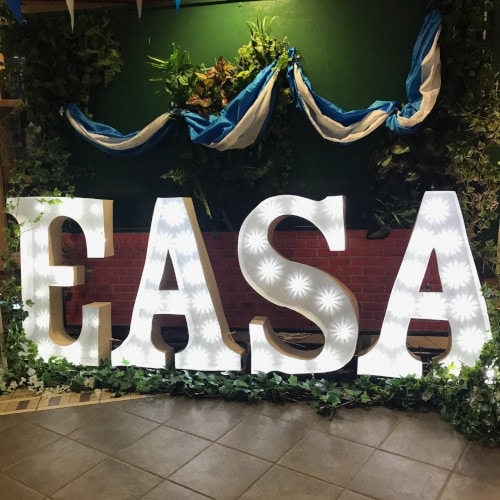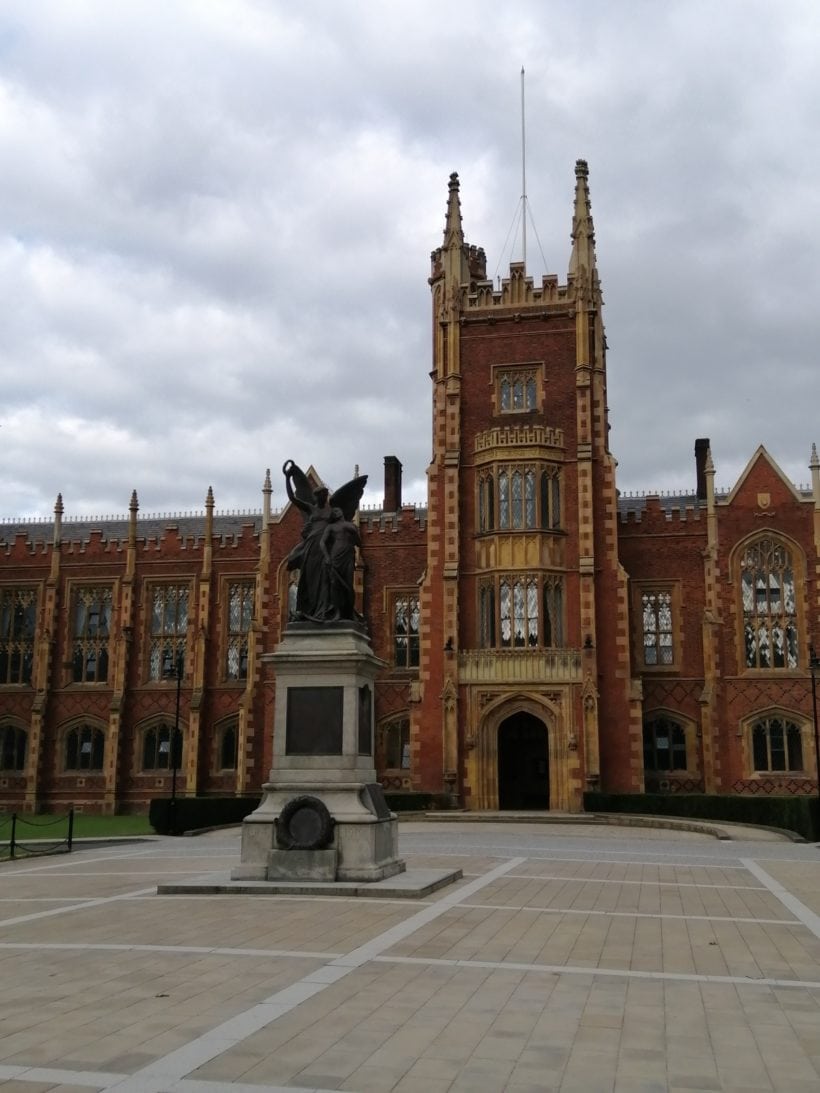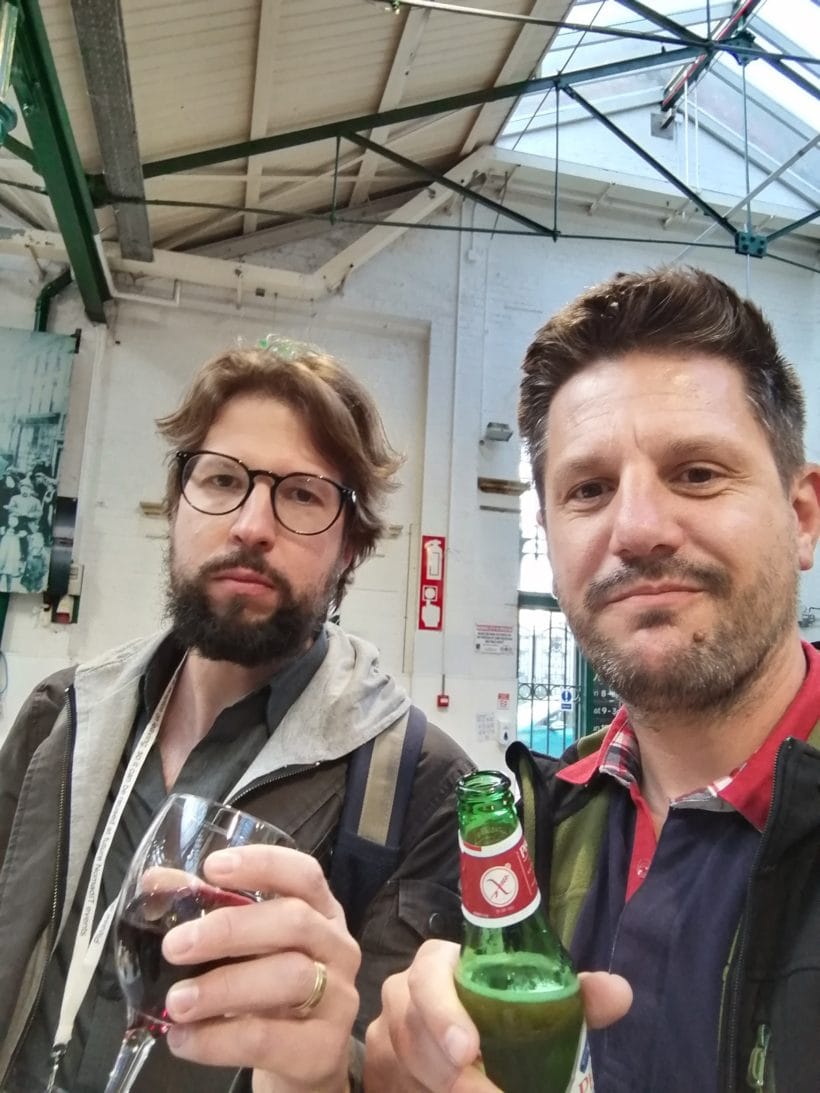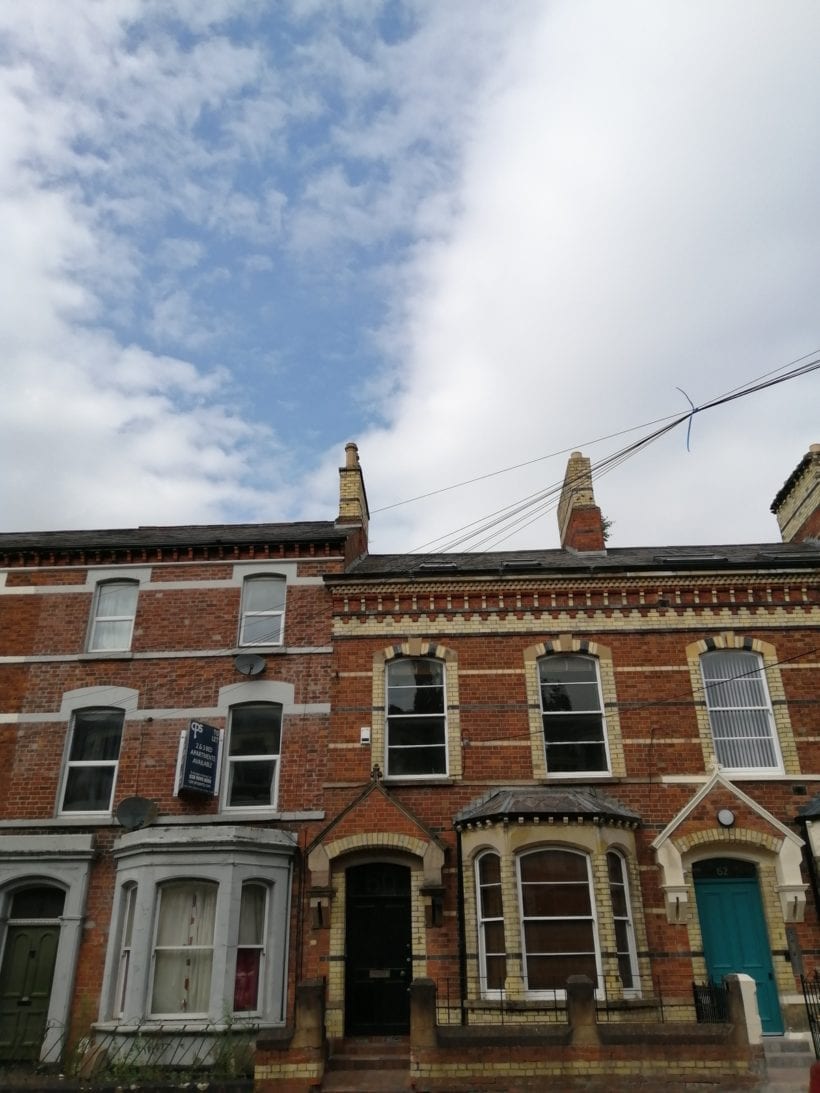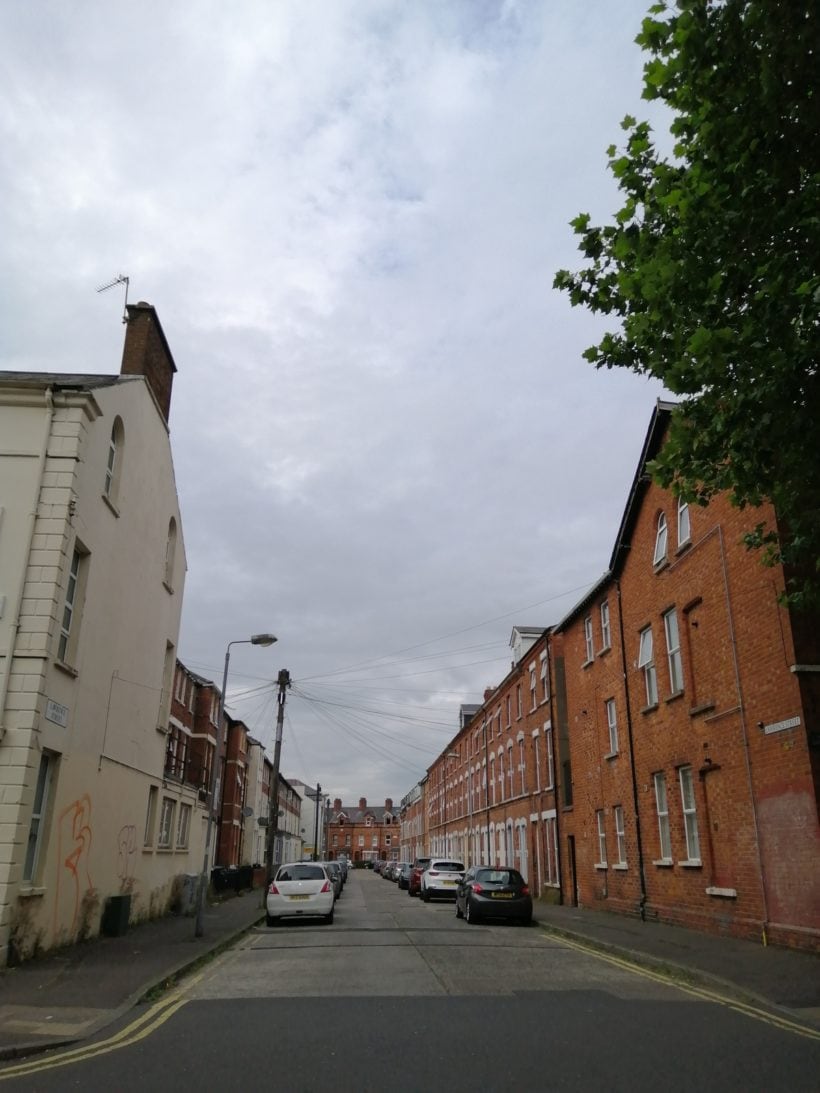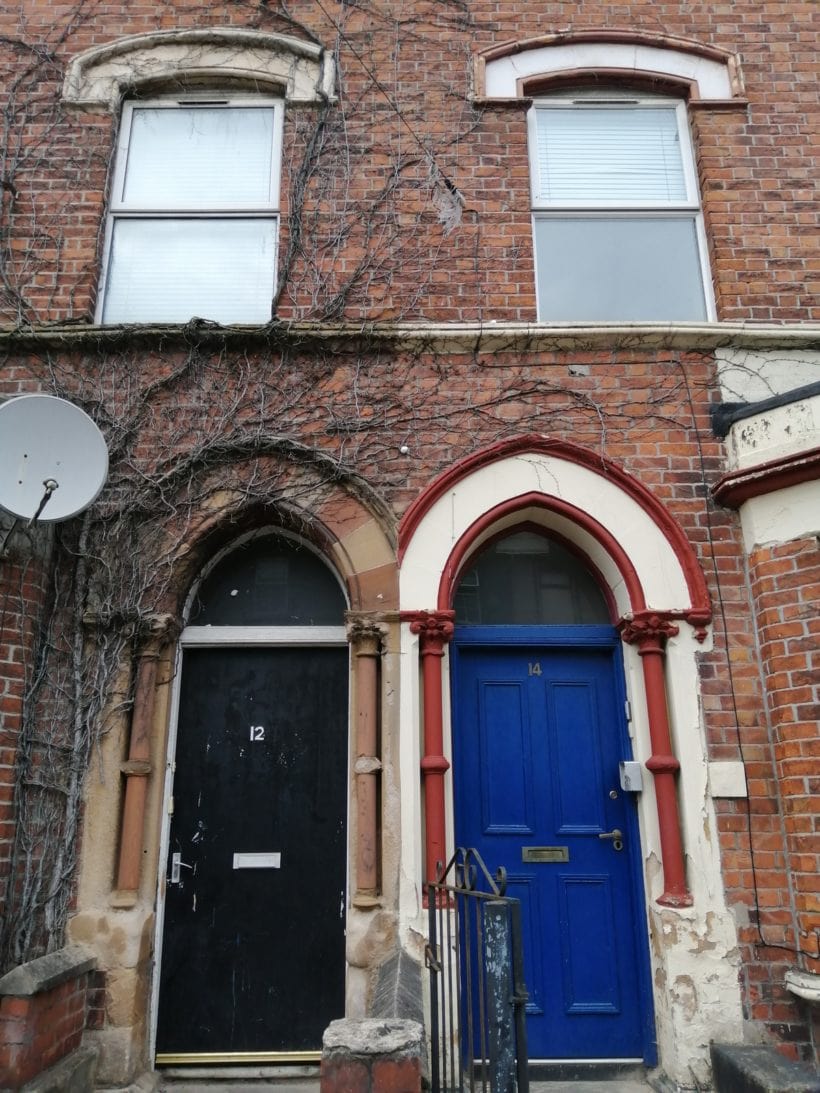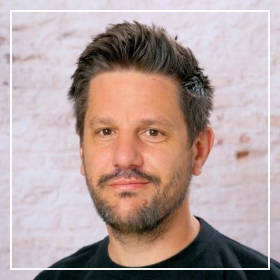I invite you to share in a partial and subjective review of the exhausting academic marathon that was the 17th congress of the European Association of Social Anthropologists (EASA).
After two years of my academic life spent almost entirely in virtuality, I had the opportunity to experience a new city and to see friends outside the small black frames of the computer screen. Although the global health emergency is not over, this congress allowed those who were able to be there physically to appreciate the encounter, the shared laughter, the toast with real glasses and the celebration with our peers of the joy of being alive. This raises the question of what the congress brought to those who, for various reasons, had to stay at home. While the hybrid format allowed them to “attend” the various presentations, many encounters take place outside the formal academic context, and thus outside of Zoom. These spaces contain any congress’ greatest potential. There, transnational networks for promising future careers or alliances for the radical transformation of our discipline are built and strengthened. In the future, we must discuss how to make such spaces more inclusive for all, both those who can physically attend and those who cannot.
Many encounters take place outside the formal academic context, and thus outside of Zoom.
Two buses too me from the airport to the hostel located on Fizroy Ave., close to the University and still within my budget. Ever since I started attending congresses, I always liked to rent places outside the city centres, that is, somewhat outside the seats of political and economic power. Such more relegated spaces are in every city despite the capitalist wallpaper and the superficial gloss of individualism; using them as a starting point for exploration, I find, is a way of getting to know the essence of a city and its inhabitants more deeply.
I am aware of the irresponsibility of offering a general impression of Belfast and its inhabitants without having resided there for a long time; my account will be limited to the areas I was able to walk through, from the area of Stranmills University College in the south to Grove Park in the north and the city’s Cemetery in the west.
Still close to the Belfast city center, I turned into one of the many streets denied by capitalist opulence; along a scarred road I saw businesses closed due to the negligence and carelessness of an anachronistic political system: A rancid monarchy embedded in the capitalist machine. There, in the open air of that nearly deserted street, I had a beautiful dialogue with a lady. Immediately noticing my foreign condition, she asked me if I was lost. I replied that I was, but that it didn’t matter since I was walking around the city to get to know it. I told her about the EASA conference. She laughed and said it was interesting that people from so many places were coming together in Belfast to discuss things like ‘hope’. She then added that the word seemed a thing of the distant past, as the people of Belfast had long been the forgotten margins of the empire. Wise words. Our gazes met in silence. I said goodbye to the woman who was a loyal and imperishable memory, a deep abyss of the past and its spirits.
A rancid monarchy embedded in the capitalist machine.
The complex history of Belfast, condensed in this lady’s words, is a metaphor for the deep political, economic and religious division that is embodied, among other things, in a 40-kilometre wall separating two religious communities. The violent times, known as “The Troubles”, far from being just another appendix in the history books, still seem to be part of the daily lives of Belfast’s inhabitants. This state of perpetual uncertainty about the future and the everlasting pain imposed by coloniality makes me think of Belfast as a Southern hinterland within the UK. It must be remembered that within the Global North there are also Global Souths: peripheral and subordinated spaces in global modernity that constitute places of subaltern resistance.
My quasi-shamanic search for the city’s lost spaces was furthermore stimulated by my professional situation, which does not even amount to precariousness. Perhaps this is the everyday life of many of those who are reading this article, so I won’t be telling you anything new. I can only say that in the German case (I have been living in Berlin for 12 years), the discussions about the need for a change of system – follow them under #IchbinHanna/#IchbinReyhan – are marked by the absence of a solidary, collective, horizontal and intersectional perspective. But that is a discussion for another article.
This state of perpetual uncertainty about the future and the everlasting pain imposed by coloniality makes me think of Belfast as a Southern hinterland within the UK.
In addition to the accommodation costs, I had to pay for transport, food, membership and registration fees. Although some of these costs were covered by the organisers, for which I am very grateful, I had to pay more than 500€ to attend the congress. For many of us this is a lot of money. I know several colleagues whose papers were accepted but who received no funding, not even for on-line participation. Sadly, these colleagues were from countries in the Global South with serious economic problems. I discussed this with some of the conference organisers; their response was that this conference was still cheaper than those run by the American Anthropological Association. I am aware that money, manpower and other resources are required for organising such an event. But that an event is cheaper than that of other associations does not justify an incomplete inclusion policy. It is necessary to enable the presence of people with severe economic realities, either with free admissions or symbolic payments either to attend physically or virtually. This would contribute to a multi-diversity of voices. Otherwise, the EASA will continue to be a congress with economically well-off (mostly European) academics talking about issues in parts of the world they don’t even live in.
After leaving my backpack at the hostel, I went to the reception party. There I was able, after two years, to meet my friend Erik Petschelies. Between the sound of the violin and the wood rhythmically struck by the Irish dancers’ shoes, we toasted to the consecration of our long work: we were going to coordinate our first panel at EASA. We also had the privilege of being the only panel in the whole congress dedicated to the history of anthropology. We wondered a lot how it was possible that in an event of this magnitude there was only one panel discussing the past of our discipline: because of course, without historical discussions, we run the risk of transforming the present into a crude and dangerous copy of the past, condemning possible futures to a simple retrospective echo.
But that an event is cheaper than that of other associations does not justify an incomplete inclusion policy.
In some of the few panels I was able to attend, I heard similar concerns. It is comforting to know that in dispersed latitudes there are other individuals who risk epistemic disobedience, who commit the blasphemy of not forgetting the memories denied by the official academic canon, who against any common sense of intellectual comfort continue to believe that the search for other worlds is worthwhile. Thus, old colleagues were interwoven with new ones. Long-term utopias were spun with renewed chimeras.
I can say little about the conference as a whole, given its magnitude. But the reflections that emerged in our panel, especially on the colonial continuities in anthropological practice, can be useful for critically examining the everyday work we do. In recent years, the so-called postcolonial perspective, in its Western version and capitalised by institutions in the global North, was presented as a novel epistemological turn that offered a critical perspective on the state and history of anthropological practices. While it made some progress, it was grounded in global relations of multiple power asymmetries and subordinated to Western narratives. In this sense, I believe it is necessary to delve deeper into what I would like to call chronotopes of coloniality. Promoted by certain sectors of the academic establishment, they articulate and relate at the discursive and material level a narrative analepsis that only perpetuates silence, exclusion and the denial of the pluridiversity of voices.
Another point that ran through the panel was the need to critically investigate the construction, imposition and continuity of the partialised history of the discipline and institutionalised canon. Possibly this will allow us to move away from historiographical reconstructions that celebrate and call to remember the so-called founding “fathers” of anthropology.
It is comforting to know that in dispersed latitudes there are other individuals who risk epistemic disobedience.
Such a critical revision of the discipline’s history would also compel a consideration of the geopolitics of coloniality, driven historically by ecclesiastical, economic and political powers. In their institutionalised form, these powers denied the pluridiversity of individuals, but ironically used it for the construction of global racial hierarchies that legitimised the exploitation of those very individuals aggregated into tenuous categories. Our discussions drew attention to the persistence of these geopolitics, so we proposed to conceive and analyse knowledge systems as devices for the dissemination of racial/modern/heteronormative epistemology. In the streets I walked in Belfast, I could see some impacts of these devices of coloniality. There, the abandonment and dismemberment was not only translated into the very materiality of the shattered pavement or the closed shops, but also in the definition of Belfast as a “forgotten margin of empire”.
The anachronisms of classical historiography seem to be content with celebrating certain moments or individuals in the history of the discipline (mostly male, white and from the West). But we believe in the immense potential of the study of the past for the development of tools for political intervention in the present and the construction of a pluridiversity of futures.
Some of the discussions in our panel touched on debates in other panels. However, the most profound reflections took place in the corridors, in the shade of trees or between mugs of beer. Under-appreciated by certain well-heeled academics, these places are still (in my opinion) the real spaces for discussion/construction in any scientific event. It is there that the alliances that will allow the radical transformation of the discipline are built because, as a friend once said, the revolution will not be on-line.
Another point to note is the forced inclusion of actors from the Global South by certain individuals and institutions from the Global North.
In a very generalised way, these bacchanalian reflections deeply questioned the still dangerous and inexplicable continuity of heteronormativities in the postcolonial discourses that (in theory) came to subvert colonialism. Thus, the role of certain people and institutions as active agents in perpetuating the orders of coloniality needs to be interrogated. As we were discussing with a colleague between the first chords of “Dancing Queen”, as our glasses were emptying with disturbing speed: there are individuals who are appropriating the counter-narratives of the Global South by institutionalising the decolonial perspective as a dominant paradigm. It is with deep sadness that I must point out that some of these individuals come from the Global South. Possessing vast cultural, economic and symbolic capital (the product of epistemological extractivism from Global South sources), they have become celebrities of the postcolonial canon.
Another point to note is the forced inclusion of actors from the Global South by certain individuals and institutions from the Global North. This crude attempt of anthropological progressivism is simply a new paint layer for the continuity of the “hidden abode of production”, in Marx’s words. It is the irrational extraction of living knowledge to be used for the production and academic profit of a minority that will regurgitate it to the Global South as “new decolonial perspective”. It is urgent to generate collective and intersectional dialogues that move us away from progressive, liberal, Western, middle (upper) class anthropological discourses that are abysmally separated from the real problems of the oppressed academic majority.
May #EASA2024 be a laboratory in its entirety, a device for political and social intervention.
Unfortunately, this last point appears utopian if we consider the archaic (but still existing) hierarchy of power within EASA. I recognise and welcome the activism of many individuals, both from outside and inside EASA itself, who are fighting endlessly to overcome such hierarchies. But there are still scholars who, despite being at the end of their careers, raise their voices in the face of the threat to their class privileges. At the general assembly, it was demanded that EASA’s primary objective (and almost sacrosanct supreme dogma) should be the transformation of anthropology into a scientific discipline. The eternal return of these anachronistic dreams of the old Western modernity must come to an end. I believe that we must aspire to anthropology as a collective praxis in the construction of the pluridiversity of worlds. May #EASA2024 be a laboratory in its entirety, a device for political and social intervention.
Barcelona offers a historical space of resistance.
I am aware of the global health crisis and the economic constraints of a congress in any format, but there is something about the face-to-face format that deserves to be saved. These two years of social isolation in pursuit of the collective good have made us fragile and susceptible. The constant postponement of our plans, the precariousness of life and the permanent uncertainty were devastating. But we are still alive, and this means to make choices. In this context, face-to-face conferences offer a space where genuine hallway discussions converge, where virtual relationships condense over cups of coffee, where plans for saving anthropology from post-colonial pseudo-progressivism are conceived. Even more importantly, the face-to-face conferences give us the opportunity to meet and dialogue with people like the lady in the street, who shows us the need for anthropological praxis at the service of the grassroots and as a tool for social transformation. I look forward to personally shaking hands with colleagues again in Barcelona. As a city whose freedom was eliminated by Franco’s rancid fascism and is still denied by the decrepit monarchy, Barcelona offers a historical space of resistance to transform #EASA2024 into a congress that actively promotes the disappearance of racial, geopolitical and epistemic boundaries of anthropological practices and, in turn, strengthens the bonds of international solidarity.
Your struggle is not a solitary one. In the face of the academic imposition of isolationism as a guarantee of success and promise for the future, let us pursue a collective, anti-/counter-colonial, intersectional and solidarity-based revolution. For some, our struggles may be mere shouts in the wind. But it is precisely this manifestation of the impossible that the academy fears, the demonstration that it is possible to build another way of doing things. Never lose the determination to chase windmills.
Images courtesy of the author.

